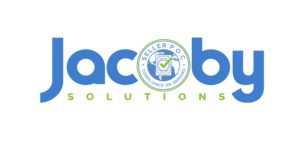CPSIA Testing Exemptions
In August 2011 an amendment to the Consumer Product Safety Improvement Act (CPSIA) was signed into law and provides an exemption to certain types of tests for children’s products. To qualify for these exemptions you must first be classified as a “small batch manufacturer”. The amendment identifies a small batch manufacturer as (both criteria must be met to qualify);
- Sales – Total gross revenue from the prior calendar year (e.g., calendar year 2011 sales would be used to qualify for calendar year 2012) from the sale of all consumer products is $1 million or less
- Production – Manufacture of no more than 7,500 units of the covered product from the prior calendar year (again like the example above, calendar year 2011 production would be used to qualify for calendar year 2012)
If a manufacturer qualifies based on the above, the next step is to register in The Small Batch Manufacturers Registry and once registered the manufacturer can apply the exemptions to certain types of testing to their products.
Small batch manufacturers will always be required to third party test for compliance certain children’s product safety rules as it applies to their product. These rules that must be tested for are called Group A (http://www.cpsc.gov/info/toysafety/smallbatch.html). Small batch manufacturers would not be required to test for other children’s product safety rules call Group B (http://www.cpsc.gov/info/toysafety/smallbatch.html). It should be noted that even though the small batch manufacturer would not have to test for the safety rules in Group B, they must ensure that their products are in compliance with the underlying children’s product safety rules found in Group B.
Small batch manufacturers are still responsible for issuing a general certificate of conformity (GCC) for their products and must make sure they include their small batch manufacturers number issued by the CPSC to show their exemption from certain testing.
Registration is required every year to prove qualification as a small batch manufacturer and can be done on individual product groups. For example, a manufacture can register as a small batch manufacturer for Product X (less than $1 million in sales and under 7,500 units produced in once calendar year) but still have Products Y and Z that are above either the sales or units threshold.
An importer can register as a small batch manufacture IF both the importer and the manufacturer of the product meet the sales and production standards of a small batch manufacturer. For example, an importer that has no more than $1 million in gross revenues qualifies as a small batch manufacturer if it is importing goods from a foreign manufacturer that produces fewer than 7,500 units of a covered product and also has a gross revenue of less than $1 million. On the other hand, an importer that imports goods from a foreign manufacturer that mass produces goods cannot be considered a small batch manufacturer for that product, even if that importer has less than $1 million in gross revenue and is importing fewer than 7,500 units of a product from that foreign manufacturer.
Some things to consider, as a small batch manufacturer there is some relief from required testing but in return the manufacturer agrees to have their business information made available to the public in a searchable database. Registered small batch manufacturers will also be notified electronically of any Report of Harm involving their products submitted by consumers through the Safer Products publically available website.
2012 is just days away …. is your company ready? Need help in deciphering the law as it pertains to you? Jacoby Solutions can review your testing program and labeling process to make sure it contains all the elements as outlined under 1107 including record keeping. We also can provide services for Sourcing/Project Management testing for any new products you have in development or act as a liaison between you and your factory. Contact us today and see how we can save you money!
Bill Jacoby is the founder / principal at Jacoby Solutions and has developed the CORE Audit™ (Compliance Operations Readiness Engagement Audit), the company’s proprietary approach to business operations compliance readiness. A one-stop shop for manufacturing and distribution companies in need of a solutions partner who can help them evolve their business while keeping an eye on compliance, Jacoby Solutions saves companies time, money and resources while helping them become CPSIA ready.
